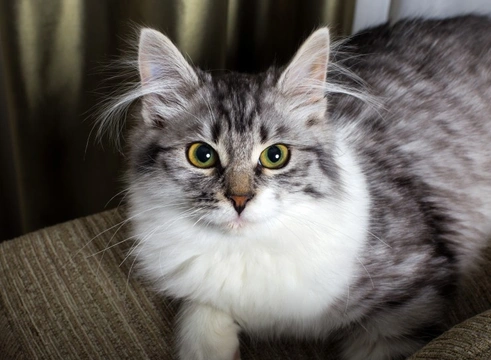
Important information for cat owners: UK Food Recall
Whether you have a cat of your own or a friend has one, please read this important information regarding a UK cat food recall due to adverse effects observed in cats that have eaten it.
Pets at Home Recall foods from the “Ava” range
Pets at Home announced a UK-wide recall of foods from their in-house “Ava” food range this week, after some cats that consumed it suffered from severe ill effects, including collapse.
If you (or someone you know) feeds food from the Ava range to a cat, you should check if it is one of the recalled products, stop feeding it immediately, dispose of the food where cats will not be able to get to it, and return the empty packaging to a Pets at Home store for a full refund.
Which foods are affected specifically?
The entire Ava food range is not affected by the recall, and in fact only four products have been identified as a problem at this point. The four affected products are:
- Ava mature cat (chicken) 2kg Code 7120400
- Ava mature cat (chicken) 4kg Code 7120401
- Ava senior cat (chicken) 2kg Code 712402
- Ava adult cat (neutered, indoor) 1.5kg Code 7120407
If you currently have any of these products in your home, follow the advice above regarding disposal and refunding.
All of these products are dry biscuit or kibble from their older and indoor cat ranges. This range is made in the UK, and is manufactured for Pets at Home and sold exclusively in their stores.
All of the other foods in the Ava range remain safe to feed to your cat.
Why the recall?
The recall has been announced after cats fed the above-listed foods from the Ava range exhibited a range of acute symptoms including fitting, sudden collapse, twitching and unsteadiness. Currently, three cats have been treated for these symptoms, and are fortunately all currently stable under veterinary care and expected to recover.
After the cat owners in question and their vets investigated the potential causes of illness, Pets at Home was immediately advised of the problem, recalled the food, and launched their own investigation into the products.
What caused the problem?
Fortunately, the cause for the acute illness displayed in affected cats was discovered upon testing and analysis of the recalled food. The result was that the level of vitamin B1 or thiamine was much lower than it should have been, and was incorrectly listed on the bags’ packaging. However, the symptoms displayed by the cats who were affected were not the usual symptoms that vets would expect to see presenting in a cat with thiamine deficiency, which all cat owners and vets should take note of.
What is thiamine?
Thiamine is one of the vitamins from the B group, which are essential for cats when it comes to their health and wellness. Vitamin deficiencies can lead to a range of different symptoms and problems, and a thiamine deficiency can lead to lesion development on the brain stem itself, which can cause a range of acute symptoms and even potentially prove fatal.
In order for a cat food to be labelled as a complete food, it must contain all of the various ingredients, nutrients and trace elements that cats need to thrive. The issue that has arisen with certain foods within the Ava range is not a case of an additive or foreign substance causing poisoning or illness, but rather that the thiamine levels of the food were too low for a complete food, leaving cats short of this B group vitamin that they need for good health.
What should you do if your cat has been fed one of the affected foods?
If your cat is currently fed one of the four affected foods from the Ava range, stop feeding it immediately, and return the packaging to Pets at Home for a refund. If your cat appears to be fine and healthy currently, switch them immediately over to a different food that is complete and contains the appropriate thiamine levels.
The affected cats had been eating the Ava food for four to six weeks before symptoms became apparent, so keep an eye out with your own cat too. The specific symptoms displayed by the affected cats included collapse, twitching, fitting and a general unsteadiness, which as mentioned, are not the usual symptoms of a thiamine deficiency.
It is important to note that if your cat appears unwell or otherwise not themselves and they have been eating one of the four affected Ava foods, you should contact your vet immediately and discuss this with them, ensuring that they know about the recall itself.
If this does occur, you should also contact Pets at Home directly and inform them, as Pets at Home should also take responsibility for the cost of your cat’s veterinary care for the issue.



